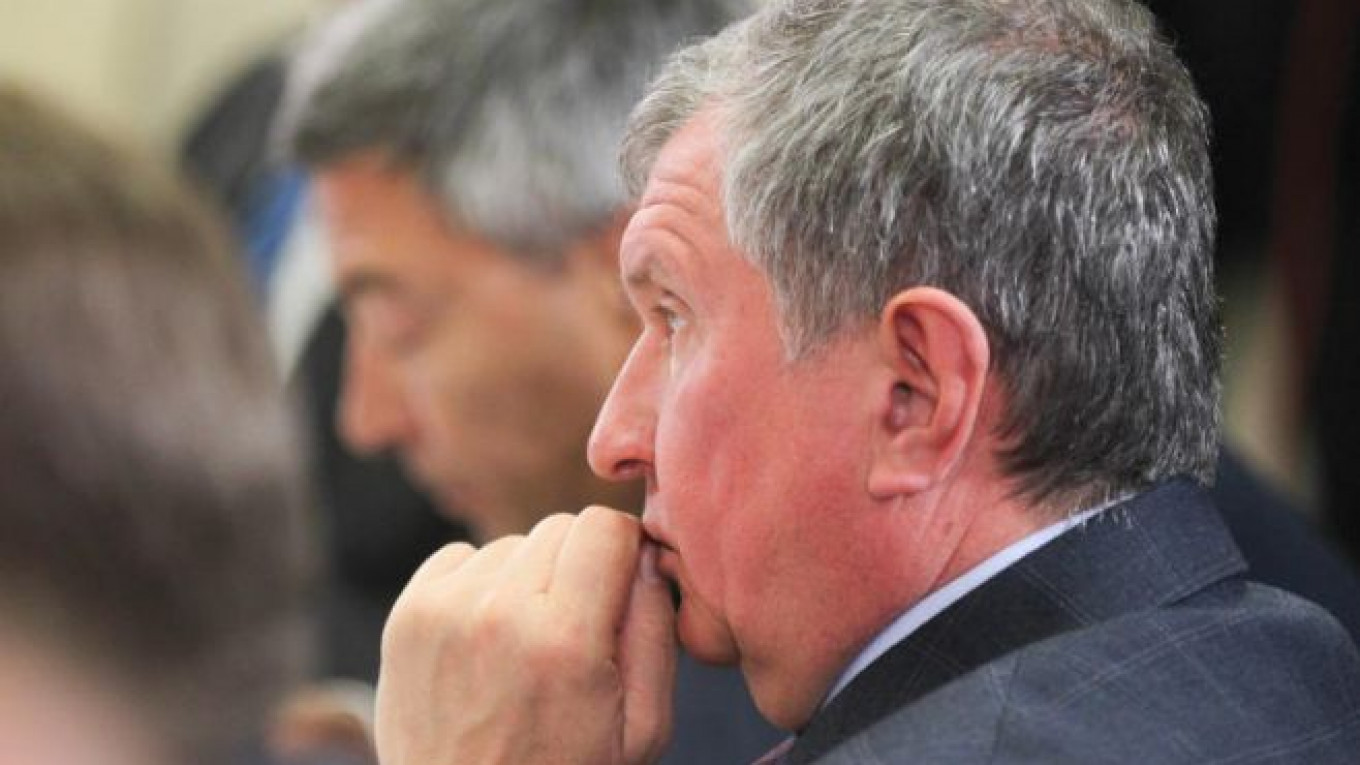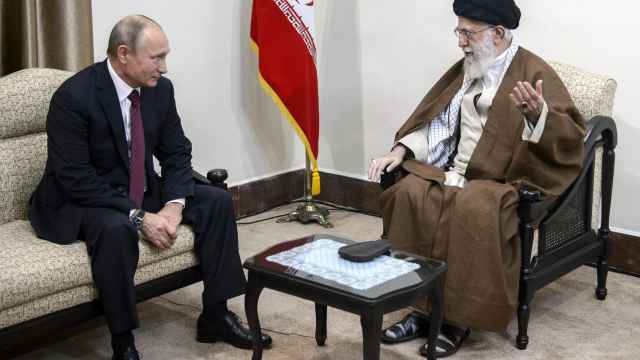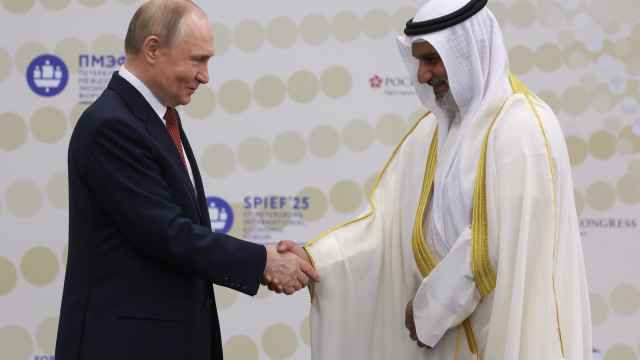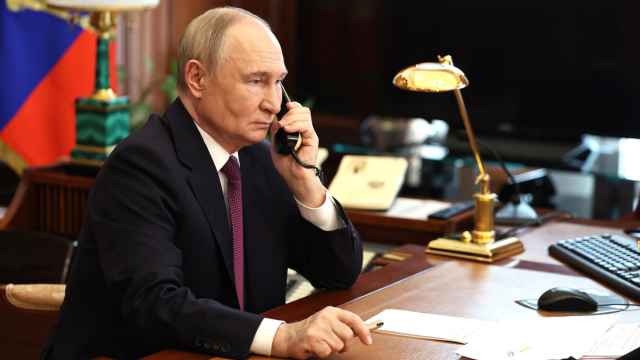ST PETERSBURG — Rosneft is working on schedule in the Arctic Kara Sea, where it drilled the first well last year, CEO Igor Sechin said, but declined to say when it would resume operations in the area seen as Russia's next oil province.
Sources told Reuters last week that the state oil producer would be forced to postpone drilling a second well in the Kara for at least two more years, a result of Western sanctions on Russia over the Ukraine crisis.
Rosneft, the world's top listed oil firm by output, drilled a first exploration well known as Universitetskaya-1 last year in the Kara Sea, part of the Arctic Ocean, with the help of U.S. partner ExxonMobil which provided the rig.
Sechin, a close ally of President Vladimir Putin, on Wednesday declined to say when the second well would be drilled.
"No projects have been derailed. Let's not aggravate the situation around the offshore," Sechin said, when asked on resuming work there.
"I am telling you once again - let's not run ahead of ourselves … Sometimes adjustments are needed but this is not linked to anything."
Rosneft, in which BP owns almost a 20 percent stake, had already delayed the drilling of the second well from 2015, after it failed to find a rig on time. It had said that the first well held light oil and that the field could hold 130 million tons of technically recoverable oil reserves.
Exxon Partnership
Exxon, whose CEO is not among participants listed on the website of the St Petersburg International Economic Forum due to start on Thursday, is a leading shareholder with another project, Sakhalin-1, in which Rosneft also has a stake.
In April, Exxon lodged a claim against Russia at the Stockholm arbitrage court as part of a tax dispute over Sakhalin-1.
Exxon believed it had overpaid taxes on profits from Sakhalin-1, in which it owns a 30 percent stake, and was seeking a tax cut and reimbursement of some taxes already paid, according to local media.
Sechin said he hoped an amicable settlement will be found and the dispute will not affect relations between the partners, including with the Russian government, or the project itself.
"Exxon is defending the project's interests in general, we are part of this project … This [Exxon's suit] was a forced position as it is obliged to defend [Sakhalin-1] shareholders, the economic regime of the project," Sechin said.
Russia reduced the profit tax in 2009 to 20 percent for production-sharing agreements such as Exxon's Sakhalin-1 but Exxon continued to pay at an earlier rate of 35 percent after the project broke even in 2008.
Other participants in Sakhalin-1, which is operated under a production sharing agreement, are Japan's Sodeco and India's ONGC.
Earlier on Wednesday, Sechin told Rosneft shareholders at the company's annual general meeting that it planned to keep its hydrocarbon production stable in 2015-2017.
"The business plan envisages a stable production level in 2015-2017 with the potential for an increase of 2 percent if market conditions are favorable," Sechin said, without elaborating.
Sechin added that Rosneft planned to produce 252 million tons of oil equivalent this year. He did not give a breakdown for oil and gas.
In 2014, Rosneft oil production reached 205 million tons (4.1 million barrels per day), compared to 4.2 million barrels per day in 2013.
Speaking in St Petersburg, Sechin said Rosneft planned to invest 300-350 billion rubles ($5.6-$6.5 billion) into new large upstream projects in 2015-2017.
Rosneft planned to ship around 40 percent of its exports to Asia by 2019, Sechin also said.
A Message from The Moscow Times:
Dear readers,
We are facing unprecedented challenges. Russia's Prosecutor General's Office has designated The Moscow Times as an "undesirable" organization, criminalizing our work and putting our staff at risk of prosecution. This follows our earlier unjust labeling as a "foreign agent."
These actions are direct attempts to silence independent journalism in Russia. The authorities claim our work "discredits the decisions of the Russian leadership." We see things differently: we strive to provide accurate, unbiased reporting on Russia.
We, the journalists of The Moscow Times, refuse to be silenced. But to continue our work, we need your help.
Your support, no matter how small, makes a world of difference. If you can, please support us monthly starting from just $2. It's quick to set up, and every contribution makes a significant impact.
By supporting The Moscow Times, you're defending open, independent journalism in the face of repression. Thank you for standing with us.
Remind me later.






